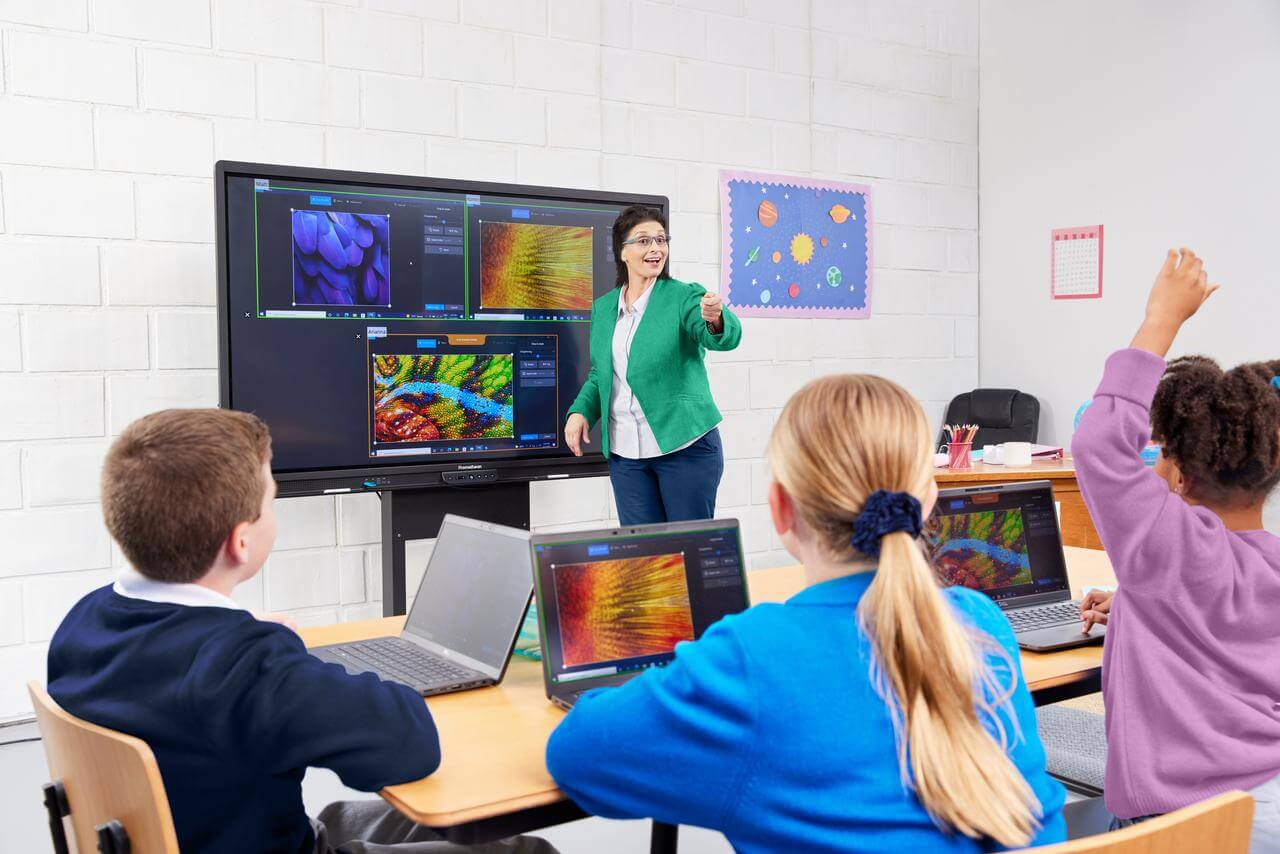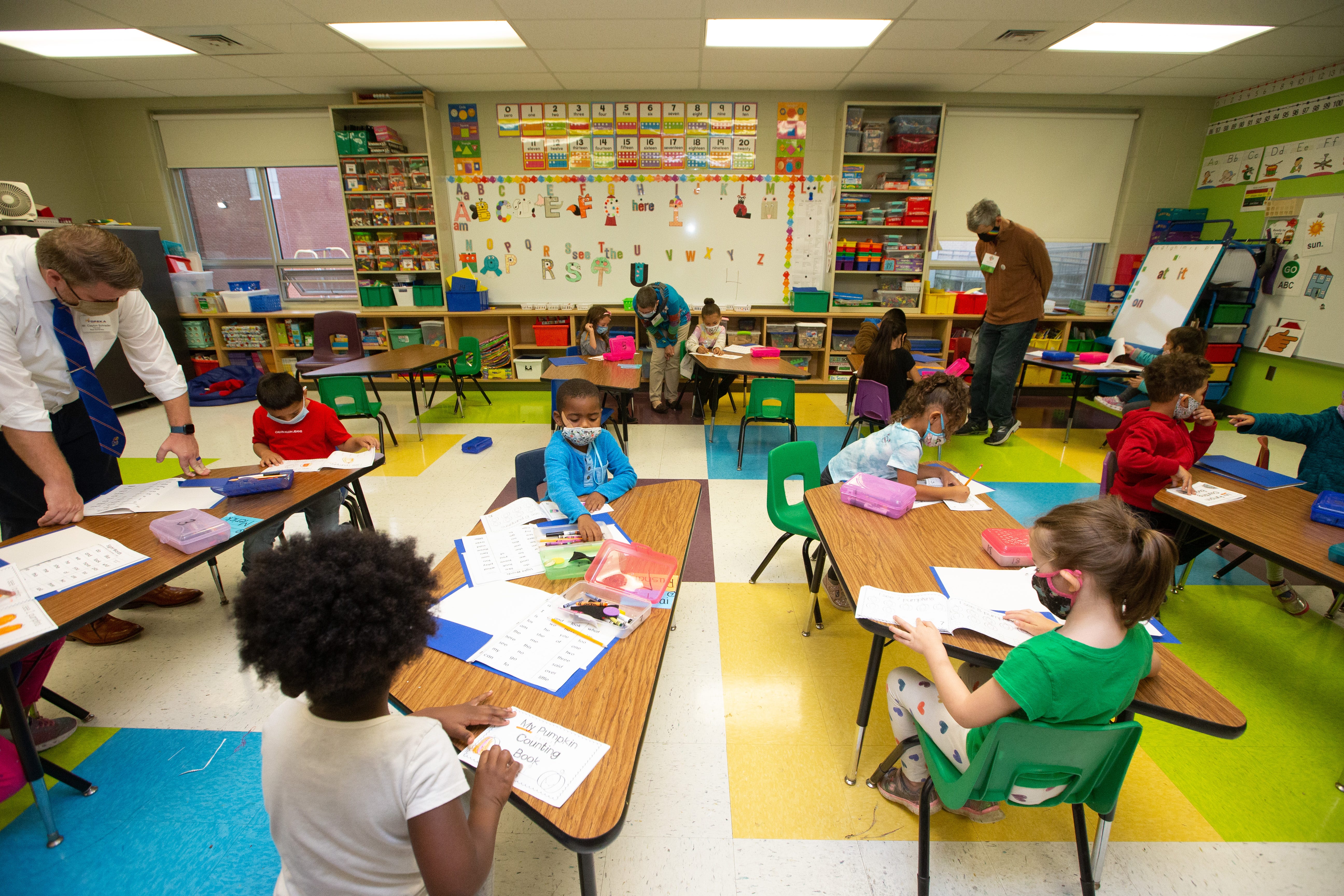Master Primary Science Concepts with Quality Tuition in Singapore
Master Primary Science Concepts with Quality Tuition in Singapore
Blog Article
Exploring the Various Teaching Approaches in Primary Science Education Today
The landscape of key scientific research education and learning is advancing, with different training approaches gaining prestige in modern classrooms. Inquiry-based knowing, hands-on experiments, and the integration of modern technology are redefining how instructors involve young minds. Furthermore, joint techniques and distinguished instruction are being used to accommodate the diverse needs of trainees, boosting both interaction and understanding. As we analyze these methodologies, concerns develop regarding their effectiveness and the effects for future instructional practices. What might these changes in method mean for the next generation of learners?
Inquiry-Based Learning
Inquiry-Based Discovering (IBL) is an instructional technique that encourages trainees to discover scientific ideas with doubting, examination, and hands-on testing. This approach highlights the duty of students as active individuals in their knowing, advertising important thinking and analytical abilities. By engaging with real-world concerns, trainees come to be interested and determined, which enhances their understanding of scientific concepts.
In IBL, teachers serve as facilitators, assisting students as they browse their questions instead of delivering information directly. This student-centered technique enables distinction, suiting various discovering styles and rates. Students develop abilities in creating hypotheses, creating experiments, and assessing information, which are crucial for scientific proficiency.
In addition, IBL cultivates cooperation among trainees, motivating them to share concepts and findings. This cumulative query promotes social skills and a sense of community within the classroom. Additionally, the process of inquiry motivates resilience, as students find out to welcome failing as a tipping rock toward understanding.
Hands-On Experiments
Hands-on experiments are an essential part of efficient science education, complementing the concepts of inquiry-based discovering. These experiments enable trainees to engage straight with scientific concepts, cultivating a much deeper understanding with experiential knowing. By manipulating products and observing outcomes, young students can understand abstract concepts in concrete methods.
Such activities advertise important thinking and problem-solving abilities, as trainees hypothesize end results, conduct experiments, and examine results. This process encourages them to ask inquiries, improve their understanding, and develop a clinical way of thinking. Hands-on experiments can be customized to varied learning styles, making certain that all students have the possibility to involve meaningfully with the content.
Furthermore, hands-on experiments typically encourage cooperation among peers, advertising synergy and communication skills. Operating in groups makes it possible for pupils to share ideas, go over findings, and gain from each other, which improves their total educational experience.
Incorporating hands-on experiments into the primary science educational program not just improves the finding out environment however likewise cultivates a lifelong rate of interest in science. By actively joining their education and learning, trainees are most likely to develop a passion for scientific inquiry that prolongs beyond the classroom.

Innovation Assimilation
Integrating modern technology right into primary science education and learning has ended up being significantly essential in fostering trainee involvement and boosting finding out results. Using electronic devices, such as interactive simulations, digital labs, and educational software application, supplies trainees with chances to explore scientific principles in cutting-edge means. These resources help with a much deeper understanding of complicated topics by allowing learners to imagine and manipulate variables that would be not practical in see this a standard classroom setting.
Moreover, modern technology integration encourages personalized finding out experiences. Trainees can progress at their very own pace, revisiting difficult principles through multimedia resources, which accommodate various learning designs. This versatility not only sustains private growth yet also grows a sense of autonomy in students.
Furthermore, technology acts as a bridge to real-world science, connecting pupils with current research and expert payments. Access to clinical journals and online data sources broadens pupils' viewpoints on scientific query and fosters critical thinking abilities.
Collaborative Learning
Collective understanding plays an essential function in key science education and learning by cultivating synergy and communication abilities amongst pupils. This approach urges learners to work together, share expertise, and take part in analytic, which enhances their understanding of scientific ideas. By participating in team activities, students discover to express their ideas, pay attention to varied perspectives, and work out options, all of which are essential skills in both real-world and academic contexts.

Research study shows that collective learning can bring about enhanced inspiration and engagement in scientific research subjects, as pupils find pleasure in shared experiences (primary science tuition Singapore). In addition, this method prepares pupils for future collaborative ventures, equipping them with the abilities necessary for efficient synergy in higher education and learning and expert settings. Ultimately, accepting joint knowing in key science education can considerably improve the discovering experience and promote a deeper understanding of clinical query
Differentiated Guideline

Differentiated guideline can show up in numerous ways, such as varying the material, processes, or products of understanding. Instructors may use tiered projects that provide differing degrees of intricacy, permitting trainees to work at their respective preparedness degrees. In addition, versatile grouping techniques can facilitate cooperation amongst pupils with different abilities, promoting peer understanding.
Analysis plays a critical duty in this technique, as it notifies More about the author instruction and helps instructors comprehend each student's special requirements. Formative analyses, such as observations and tests, can assist teachers in changing their strategies to boost finding out results. address primary science tuition Singapore. Eventually, by implementing distinguished direction in primary scientific research education, instructors can cultivate a more equitable and reliable discovering atmosphere, encouraging all students to reach their complete possibility in understanding scientific sensations
Verdict
In summary, the varied training techniques in primary scientific research education and learning, including inquiry-based discovering, hands-on experiments, modern technology assimilation, collective discovering, and differentiated direction, jointly add to an extra reliable knowing atmosphere. These techniques advertise important thinking, problem-solving skills, and a much deeper understanding of clinical ideas. By applying these strategies, educators can create encouraging and appealing classrooms that address the varied demands of trainees, inevitably fostering a long-lasting interest in science and enhancing academic achievement.
Inquiry-Based Knowing (IBL) is a pedagogical technique that motivates trainees to check out scientific principles via questioning, examination, and hands-on trial and error.Joint understanding plays a vital function in primary science education and learning by cultivating team effort and interaction abilities amongst trainees.Research shows that collaborative learning can lead to increased inspiration and interaction in science topics, as pupils locate pleasure in shared experiences.In cultivating a comprehensive understanding setting, differentiated guideline emerges as a key approach to suit the varied requirements and abilities of pupils in main scientific research education. Inevitably, by carrying out distinguished guideline in main science education and learning, teachers can grow a much more fair and efficient knowing setting, equipping all pupils to reach their full potential in comprehending scientific phenomena.
Report this page